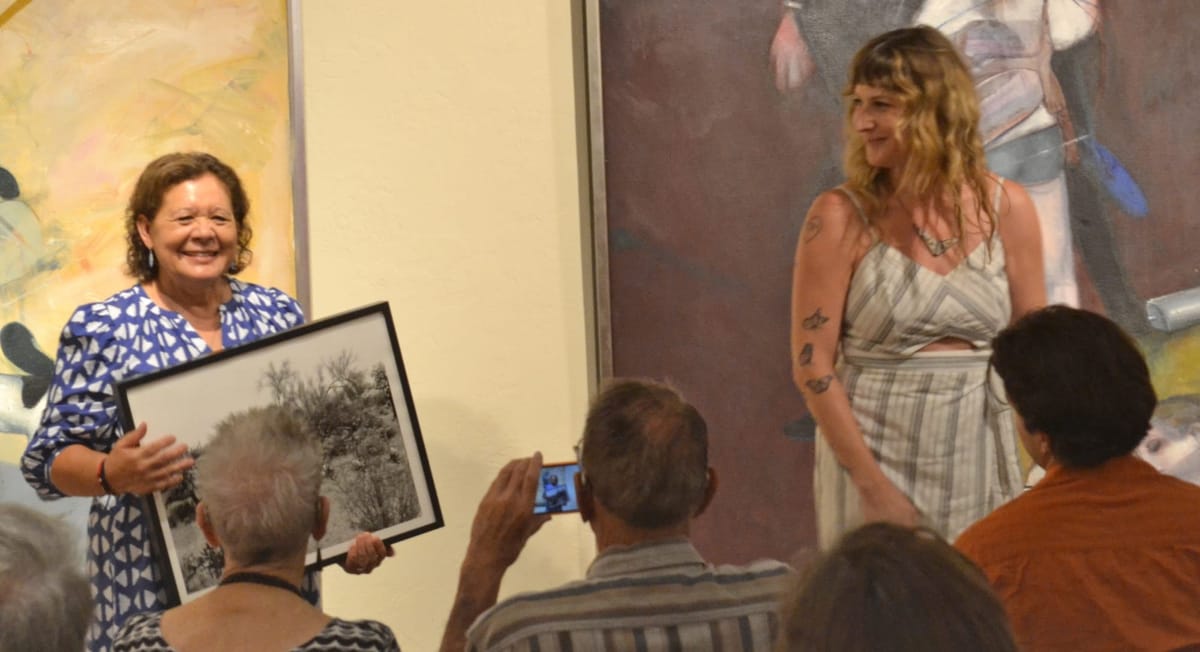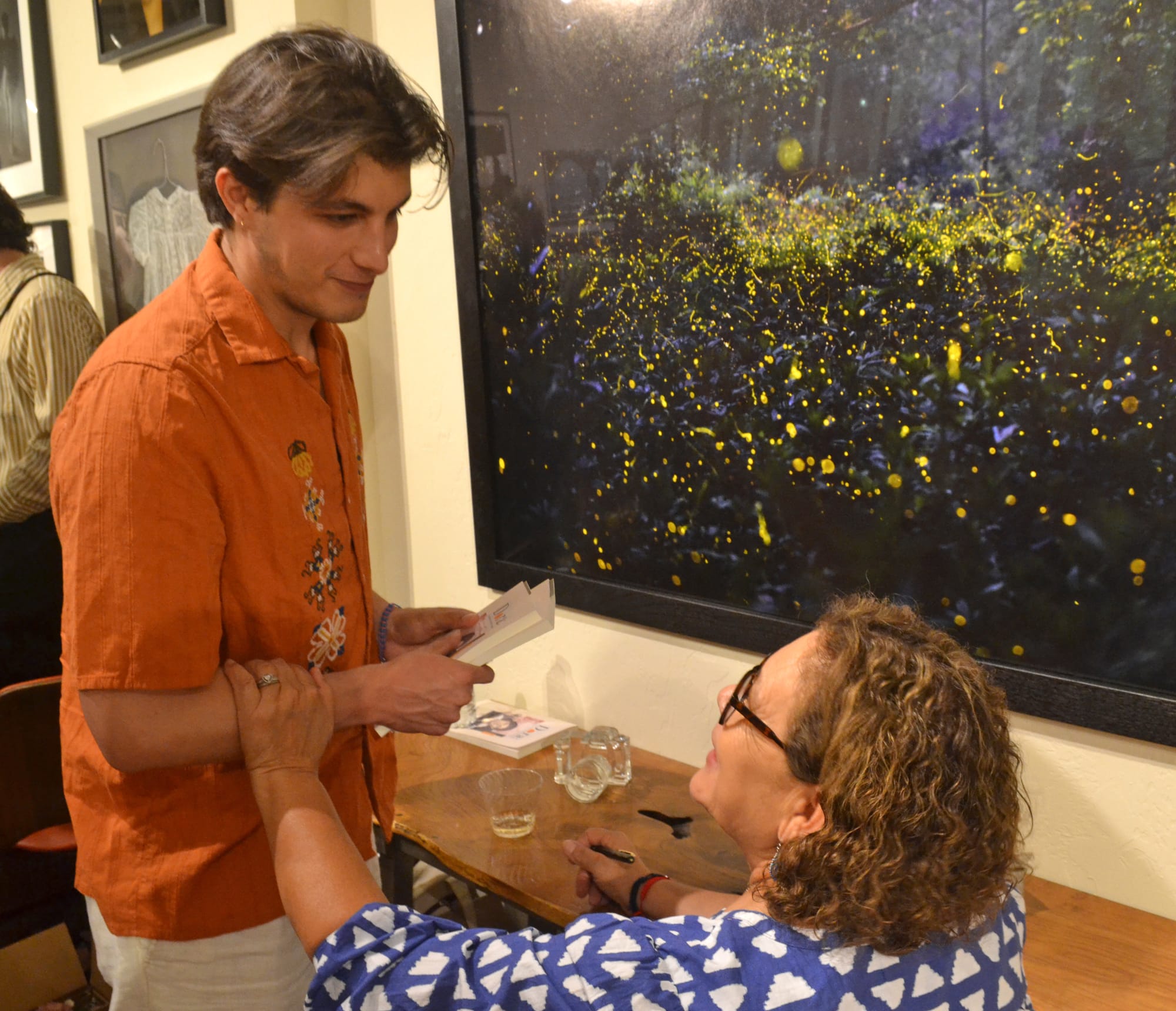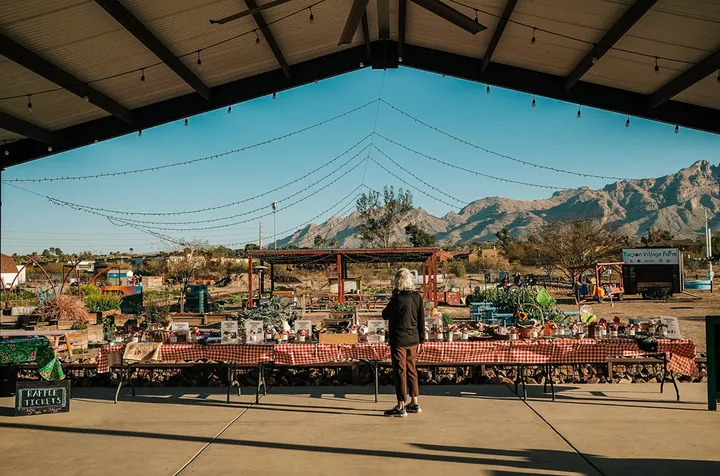Tucson activist Dora Rodriguez shares migration memoir
Activist Dora Rodriguez recounts her harrowing migration from El Salvador in her new memoir, Dora: A Daughter of Unforgiving Terrain, sharing a story of survival, resilience, and hope.

Dora Rodriguez was only 19 years old when she fled El Salvador in the middle of a civil war to come to the United States.
She and 25 others crossed into Organ Pipe National Monument on July 5, 1980; only 13 survived after being abandoned by the smugglers in the Sonoran Desert.
Rodriguez, a longtime activist and founder of Salvavision, a nonprofit that supports and aids migrants, recently celebrated the publication of her new memoir, "Dora: A Daughter of Unforgiving Terrain," at a launch party earlier this month at South Tucson’s Etherton Gallery. Local officials and community members packed the room, eager to hear Rodriguez read parts of her book and answer questions.
“I believe in stories. And this is not only my story, this is the story of thousands of people across the globe trying to find safety and exercising their right to have a better life,” Rodriguez said. “I think this story came at the right time and I hope it changes the narrative of who we are.”
She said she felt compelled to write about her experience starting in 2015, in response to rhetoric from Donald Trump during his presidential campaign.
“I remember my country being called (horrible names), and migrants being labeled as criminals, and it made me angry,” Rodriguez said.
Her book recounts not only her migration journey, but also her childhood in El Salvador and the events of the civil war that drove her to leave. Rodriguez left behind not just her home, but her family as well.
“People cannot imagine what forced migration does to us. It separates you from your family, who you know, your life and customs, culture, and it’s not fun to do,” she said. “When I fled my country as a 19-year-old, I left behind my mother, and I was her right hand. I was the one there to help with my younger siblings, and that was the toughest thing in my life I have done.”

She discussed the hardships she faced during her migration, talking about three teenage sisters she became close to during her journey.
“The most difficult part for me is to remember the moment when the first of us were dying and I couldn't do anything to save them, especially the young girls,” she told the group. “It is something that I have had a hard time processing.”
Rodriguez recounted her rescue from the desert, reading a passage from her book in which she described knowing she was dying and recalling a Border Patrol agent holding her as she begged for water.
“He said, ‘No, because it will kill you,’” she said, adding that she was later told by nurses she was just minutes away from dying.
She recalled her early days in the United States, telling the group that when she was first processed by immigration officials, she was assigned a number.
“I became an alien with a number and I was no longer Dora,” she said. “When you are just a number it is much easier to dehumanize you, criminalize you and to treat you like less than a human.”
Rodriguez said writing the book was a years-long process that included help from family members who edited it and from her son Trevor, who designed the cover depicting Rodriguez as a young woman.
She said her book isn’t political, but rather an effort to humanize the thousands of people who have made similar journeys.
“It is the truth of a person who was just seeking safety, how the world responded, and what happened after the story for me is choosing to serve my friends, brothers and sisters that are now in the same place I was 45 years ago,” she said. “We have to change the narrative and put a face to these stories.”
Colton Allder is a Tucson-based freelancer who reports for Tucson Spotlight. Contact him at callder1995@gmail.com.
Tucson Spotlight is a community-based newsroom that provides paid opportunities for students and rising journalists in Southern Arizona. Please support our work with a paid subscription.



